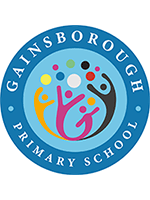Mathematics
Mathematics
Gainsborough Primary School is committed to developing children’s maths skills, our daily maths lessons lay the foundations for this critical life skill.
Here at Gainsborough, we follow the White Rose Maths programme which supports progression throughout the primary years and has a strong CPA thread running throughout. Throughout the programme children are exposed to conceptual ideas at various levels which helps to develop children’s deep conceptual understanding and skills proficiency which supports the next move into more abstract mathematics.
All of our maths lessons are designed to be interactive with a significant emphasis on children’s talk. In discussing their ideas, children construct new understanding, engage in a supportive community of practice, take responsibility for their learning and allow the teacher a window into their thinking which enables appropriate action to help them progress. Fluency, reasoning and problem solving are three themes of the maths National Curriculum (DfE, 2014) and inform all maths teaching under the PA Maths programme.
Teachers and support staff provide targeted support and assessment to help all children make good progress in maths.
| Maths at Gainsborough Primary School | ||
| Intent | Implementation | Impact |
| What we do | How we do it | How we assess it |
| Nursery follow the Primary Advantage Maths programme which covers the key skills from the Development Matters and the Early Years Framework.
Reception begin to use WRM with a focus on their development of composition and understanding of numbers.
At Gainsborough, we teach the National Curriculum for maths through the White Rose Maths Programme. The programme emphasises conceptual understanding, skills proficiency, learning of process skills and focuses on mathematical problem solving.
The programme follows a sequential process through three stages of representation: concrete, pictorial and abstract. Each stage builds on the previous one.
Every resource has been carefully designed to ensure it addresses the three key aims of fluency, reasoning and problem solving and follows the principles of teaching for mastery.
At Gainsborough, we aim to develop children’s oracy and utilise opportunities to extend children’s use of mathematical vocabulary to express their understanding. |
Nursery and reception- daily maths related nursery rhymes and maths lessons. Maths is embedded within provisions.
Maths lessons are taught at ability appropriate pitch. The structure of all lessons ensures that children are given adequate time to acquire the skill as well as apply their understanding across a range of meaningful contexts.
Opportunities for children to share their understanding is woven into lessons to encourage children to justify and ‘prove it’
Alongside White Rose Maths, we draw on the expertise of specialist subject organisations such as Primary Advantage, NCETM and I See Reasoning to support our curriculum planning.
We use the applications TimesTables Rockstars and Mathletics to supplement the daily counting and learning in maths lessons.
Developing math vocabulary is such an important part of maths at Gainsborough. Teachers use precise mathematical vocabulary when teaching, instead of using informal language. Having the vocabulary on display on the working wall and constantly referring to it helps the children to both remember and use it. Sentence stems on display during the lesson further reinforce the use of mathematical vocabulary.
In each classroom, you would see a ‘Maths Working Wall’ display; they are a place to support current and future learning in maths, and also celebrate excellent examples of pupil’s work. The working wall is purposeful, helpful, relevant and above all useful.
Teachers receive CPD termly to support their own understanding of math and explore themes and pitch with colleagues. |
Termly assessments based on teacher judgements on Insight. Gaps are analysed and in turn informs MTPs
Pupils have daily learning intentions which outline the objective of the lesson and the key skills and knowledge required to meet it. These are ticked by the pupil or partner and the teacher. Pupils are given an opportunity to reflect on their learning at the end of the lesson through a self or peer assessment. This is a valuable opportunity to assess their understanding and further explore any misconceptions.
Over the course of the week, children complete Beat its, Check its and Round ups which assess their core subject knowledge and key skills covered in the unit.
To further support children’s multiplication knowledge (and their division facts) children are tested weekly on their times tables.
Assessment and tracking Assessments are carried out systematically including end of unit assessment tasks which are carried out independently as well as summative assessments termly. Teachers use the primary fundamentals to track progress in maths. Teachers use the results to then inform planning, teaching and interventions. Assessments also inform individual learning targets. |





